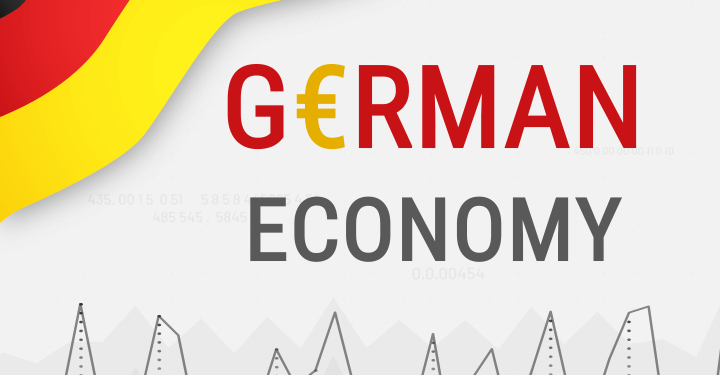Germany, home to Europe’s largest economy, faced economic headwinds in 2023 as it contracted by 0.3% year-on-year, according to the Federal Statistical Office. This contraction, in line with analyst predictions, reveals the impact of high inflation and firm interest rates on the country’s growth.
Ruth Brand, President of the Federal Statistics Office, noted that despite recent economic declines, prices remained elevated across all sectors. Unfavorable financing conditions, attributed to rising interest rates, and weakened demand both domestically and abroad further contributed to the economic challenges.
The manufacturing sector, excluding construction, played a significant role in the contraction, experiencing a notable 2% decline. Lower production levels in the energy supply sector were identified as a leading factor in this downturn.
In the fourth quarter, Germany continued to grapple with economic challenges, recording a 0.3% drop compared to the preceding July-September period. The Federal Statistical Office indicated that the German economy managed to avoid a technical recession, narrowly escaping two consecutive quarters of GDP declines.
Germany’s economic landscape was further complicated by a budgetary crisis at the end of the previous year. A constitutional court ruling on national borrowing restrictions threatened a significant gap in the country’s 2024 spending plans, amounting to 17 billion euros. The national debt brake, enshrined in Germany’s constitution, became a focal point of national politics, leading to a temporary suspension of borrowing limits.
Negotiations resulted in a budget deal, preserving debt restrictions into 2024. The government anticipates saving 17 billion euros in its core budget by terminating climate-damaging subsidies and implementing cost-cutting measures. German Chancellor Olaf Scholz’s three-way coalition announced these measures in mid-December, marking efforts to navigate the economic challenges and fiscal constraints faced by the country.
Key Points:
Germany, Europe’s largest economy, sees a 0.3% year-on-year contraction in 2023, aligning with analyst expectations.
High inflation and firm interest rates contribute to economic decline, with a 0.1% decline when adjusted for calendar purposes.
The manufacturing sector, excluding construction, experiences a sharp 2% fall, primarily driven by reduced production in the energy supply sector.
The fourth quarter witnesses a similar 0.3% drop compared to the preceding July-September period.
The Federal Statistical Office suggests that the German economy stagnated in the third quarter, narrowly avoiding a technical recession defined by two consecutive quarters of GDP declines.
Ruth Brand, President of the Federal Statistics Office, attributes the economic stall to the still crisis-ridden environment, high prices across various sectors, challenging financing conditions due to rising interest rates, and decreased demand domestically and internationally.











